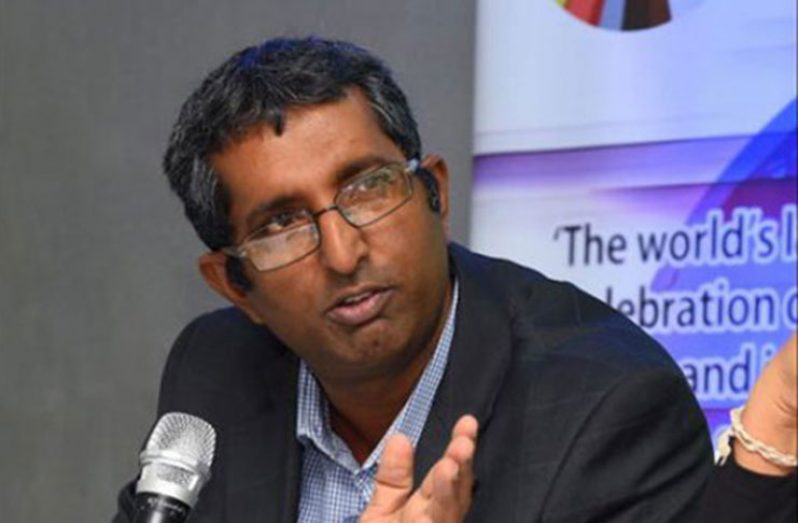GUYANA must “jealously guard” its non-energy sector if it wishes to sustain positive economic growth,Trinidadian Economist and Senior Lecturer of Economics at the University of the West Indies (UWI), Dr Roger Hosein said.
With an estimated recoverable resource of approximately 5.5 billion oil-equivalent barrels from the Stabroek Block so far, it has been reported that Guyana’s Gross Domestic Product (GDP) is set to increase significantly over the next few years.
Guyana recorded a GDP of US$3.6 billion in 2017, a figure which translates to approximately US$4,900 per capita. Former US Ambassador to Guyana, Perry Holloway, had affirmed last year that the country’s GDP could increase by 1000 per cent by 2025 with the advent of the oil-and-gas industry.
“Ten per cent of the population — if so much — will be in the energy sector which you will have growth of maybe 15, 20 or 25 per cent; and 90 per cent of the population will be in the non-energy sector, in which you will have growth of about five per cent,” Dr Hosein said at a recent forum, however.
What this means, according to him, is that the country’s growth will be illustrated by “aggregate GDP”; this is the growth in the energy sector, as well as in all other sectors.
He explained further that when countries experience that growth, inflation becomes a likelihood — where the prices of goods and services will increase. In oil-producing countries around the world, contraction of the non-energy sector has been seen too, because persons leave these for the energy sector where it is believed that higher salaries exist. Employers will be forced to raise salaries in the non-energy sector.
And because of the situation of inflation, Dr Hosein also indicated that price competitiveness of goods will be affected. Here, spending the oil revenues (by the state and individuals working in the industry) will cause an increase in the price of things.
“If it is that you have yam selling in two countries — A and B — and it is same yam of the same quality, it will be bought from the country where yam is cheaper,” he explained analogically, while maintaining that Guyana must be wary of this.
As such, he underscored: “Your non-energy sector has to be jealously guarded and aggressively guarded.”
The country’s real GDP is expected to improve, of course, but he cautioned that countryfolk should not pay attention to the aggregate GDP and “get carried away and make grandiose expectations out of simple reality.” Instead, he urged that persons focus on non-energy or non-oil GDP, which he said will not grow more than five per cent.
“I’ve seen my people in Trinidad make that mistake and it’s unfortunate that I have to speak about it,” he said, while later adding: “Oil [and oil revenues] is a very, very difficult resource to manage.”
Additionally, he urged that the country work towards increasing actual labour force participation and to do so beyond striving to only get jobs in the oil-and-gas sector.



.jpg)











